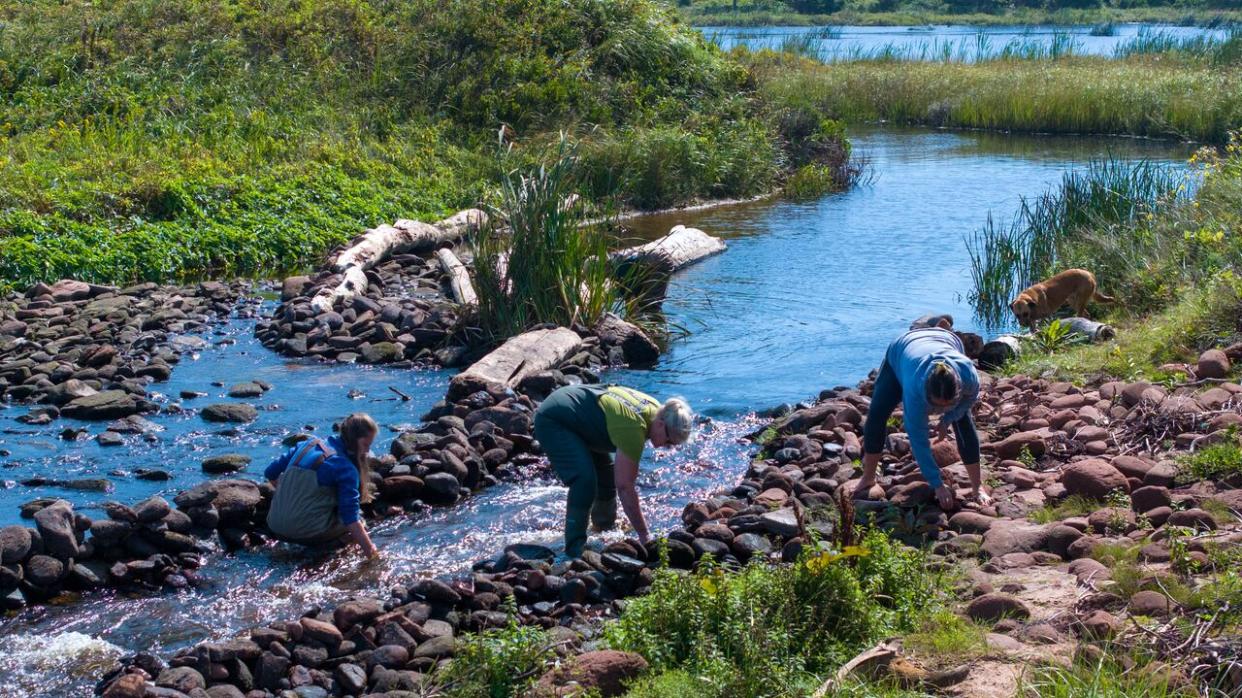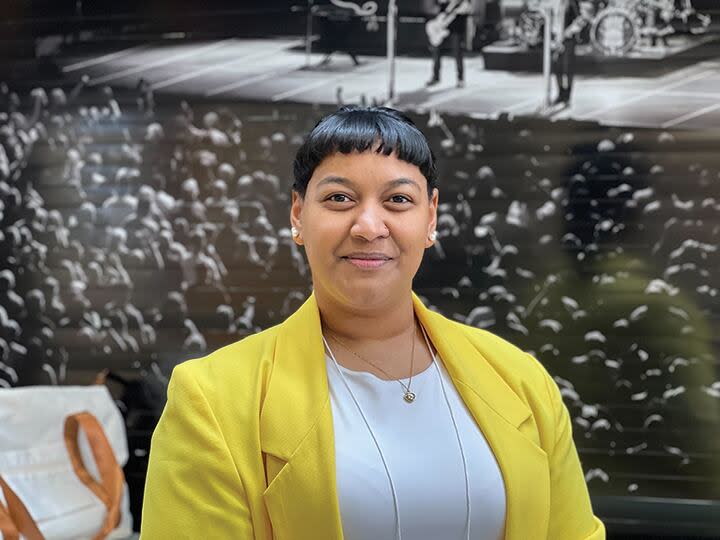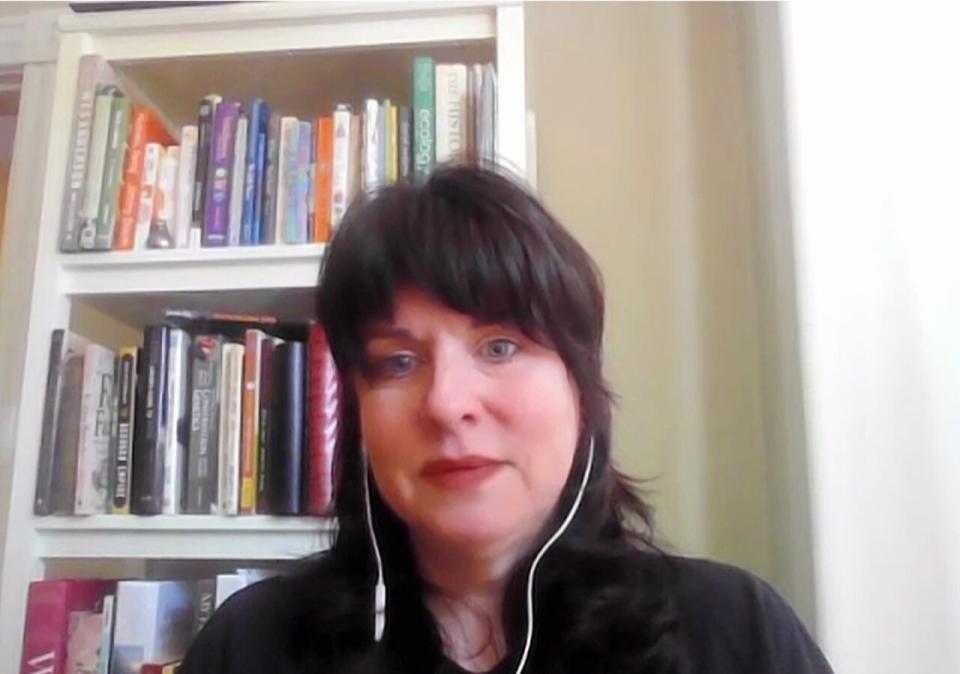P.E.I. non-profits struggling to find board members

For many non-profit groups in Prince Edward Island, finding and keeping volunteers has gotten harder.
In the past several years, fewer people are looking to volunteer and sit on boards, said Alexia Riche, executive director of the Community Sector Network of P.E.I.
"Coming back from the pandemic, everything had kind of changed," said Riche, whose group is an umbrella organization representing about 80 non-profits on the Island.
"People started working again, being busier, and priorities for people changed."

Alexia Riche, executive director of the Community Sector Network of P.E.I., says finding volunteers has become more challenging since the COVID-19 pandemic. (Jacinthe Laforest)
April 14-20 is National Volunteer Week in Canada, and organizations on the Island are putting on a push to fill board of director vacancies and other volunteer positions.
During the week, Meals on Wheel P.E.I., the Voluntary Resource Council and the provincial government are hosting a series of volunteer appreciation pop-up fairs.
The fairs will be set up in a trade show format, with tables allowing organizations to share information and engage with attendees, and to encourage more Islanders to get involved in volunteering.
It's something I wish I would have known when I was younger, just how enriching being on a board is. - Heather Laiskonis, P.E.I. Watershed Alliance
Riche said volunteer recruitment and retention is a critical issue in P.E.I. and across Canada.
If people don't step up, youth sports teams won't have coaches and some fire departments won't have firefighters.
"I think maybe some people don't realize that a lot of organizations rely solely on volunteers," she said. "It will definitely be a problem if those positions or these things were not getting done anymore."
P.E.I.'s housing crisis and inflation rates are also factors that may keep some people from committing to volunteering on a board, she said.
"They might have the passion, they are interested in the cause, [but] they might not have the resources to do it."
'Planting trees, doing good'
The P.E.I. Watershed Alliance, which oversees the province's 25 watershed groups, said some of its members are struggling to fill board positions.
Many people who have been on watershed boards for 15 years or more are now retiring, and those groups are hoping more young people fill their spots, said the alliance's executive director Heather Laiskonis.

To sit on a board, you really only need passion for the issue and a desire to help out, says Heather Laiskonis, executive director of the P.E.I. Watershed Alliance. (Isabelle Gallant/CBC)
"You get to be involved in planting trees, doing good, helping people, and you get to get outdoors a lot as a board member too," Laiskonis said.
She said serving on a board is a great way to network and make connections in your community that can help your career.
"It's something I wish I would have known when I was younger, just how enriching being on a board is."
Laiskonis also stressed that you don't need professional experience in the environmental field — just a passion for preserving the natural world.
"It's just really about bringing passionate people together that really want to help and do what they can."
Collaboration is key
Sitting on a board can help build skills such as communication, leadership and governance, Riche said.
Along with her work at the Community Sector Network, Riche volunteers as a board member for both the Women's Network of P.E.I. and Actions Femmes ÎPÉ — and said her passion for women's issues drives her to continue volunteering.
As for how to solve the volunteer crisis, Riche said a tax credit for volunteers could help.
She also thinks non-profit groups and governments across Canada need to work together to tackle the issue.
"I definitely hear that there is interest to do that — to work collaboratively to solve the problem," Riche said.

